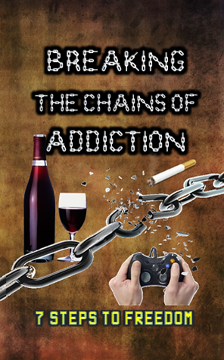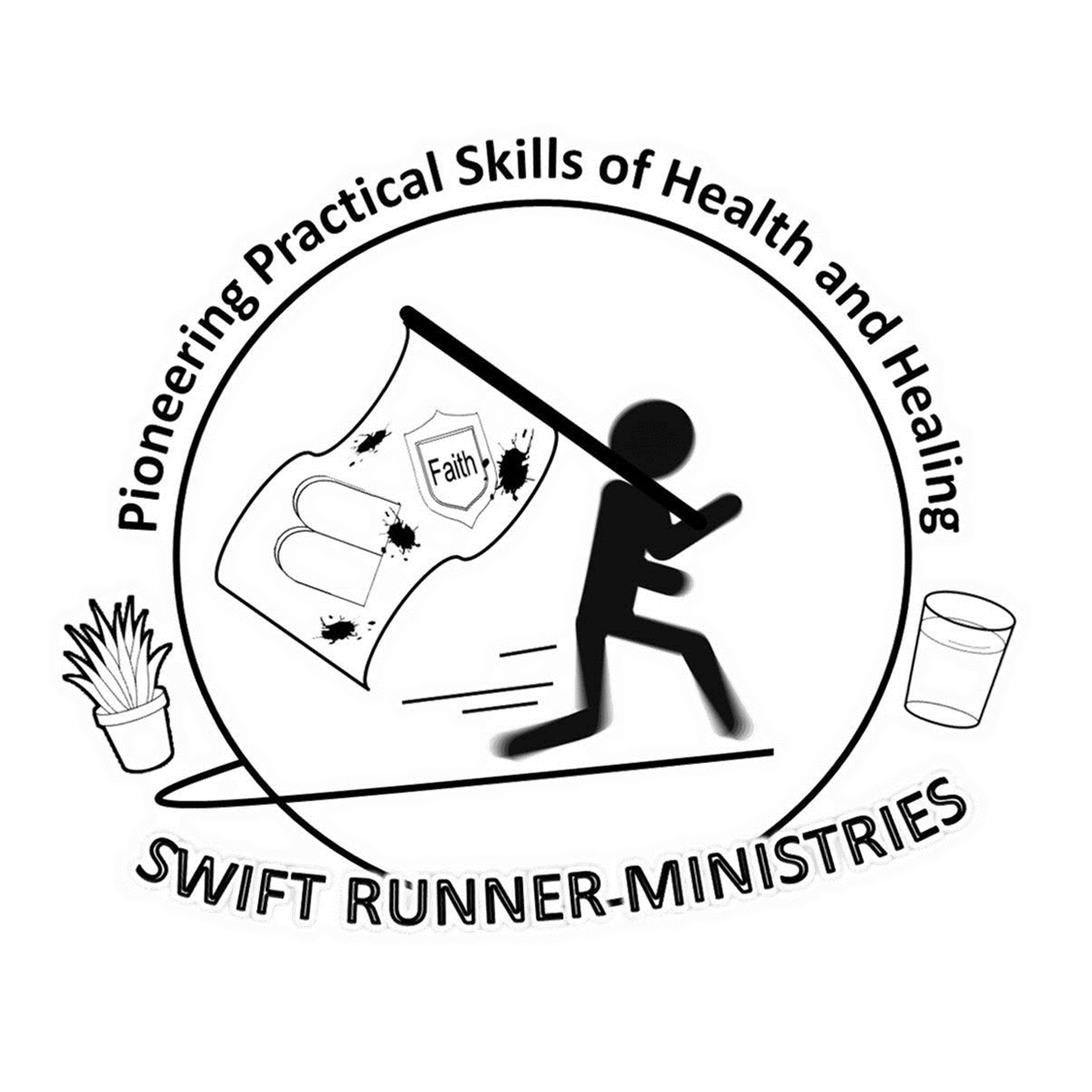The chains of addiction have their clasps around the greater majority of people today. For some, it is an addiction to a substance- like smoking or using drugs. For others, it is drinking alcohol or excessively eating junk food. Many are addicted to practices like gambling or media in the form of gaming, social media, television, or pornography. There are few who form these bad habits deliberately, but by frequent repetition of the acts, habits are formed unconsciously and become so firmly established that the most persistent effort is required in order to change courses.
A study by researchers in the United Kingdom shows that it takes only a little more than 2 months on average to break a bad habit.
Addiction is defined as the persistent compulsive use of something harmful to the user. Like a growing monster, the habit seems to get worse the longer it is practiced. Whatever your particular problem may be, you know you are addicted when-- a habit begins to rule your life and you feel unable to control the time spent or are unable to stop doing it, you lie about it to others, you use money for the habit that is needed for necessities, or the habit takes the place of family events and outings with friends. If you have tried to
quit, you may have had physical withdrawal symptoms-like sweating, chills, anxiety attacks, or a racing heart. Surprisingly, a study by the Detroit Free Press even showed television to be addictive—manifesting actual withdrawal symptoms. (Proof Positive pg. 286) But there is good news; others have gone before, and proven it is possible to have victory over addiction. Here are seven simple steps to freedom from addiction.
7 Steps to Freedom
1. Recognize you need help – Congratulations! If you are reading this you have probably already completed this step.
As soon as you acknowledge your need, you have help, for Jesus Christ will never abandon the soul for whom He has died. Unless His followers choose to leave Him, He will hold them fast. Claim the key of promise, I can do all things through Christ which strengtheneth me. (Philippians 4:13) and it will open the door to freedom from the chains of addiction.
2. Develop personal motivations for quitting—Here are a few examples:
I don’t want to be a danger to others - Smoking- experts estimate that just 20 minutes of breathing smoke-filled air makes a nonsmoker’s blood platelets as sticky as the platelets of a pack a day smokers. In such a condition, nonsmokers were more likely to form clots that could cause a heart attack or a stroke. (Tuft’s University) Also, in the US, according to the Environmental Protection Agency, second hand smoke causes as many as 300,000 cases annually of respiratory infections in children under the age of 18 months. Alcoholic Beverages contribute to 100,000 deaths annually, making it the third leading cause of preventable death.
I want to have more energy, better health and live longer – Smoking accounts for 87 percent of all cancer deaths, 82% of all chronic obstructive pulmonary disease deaths, 21% of all coronary heart disease deaths, and 18% of all strokes. Statistics show that half of regular cigarette smokers die prematurely of smoking-related disease. Nine out of 10 diagnosed with lung cancer will die of it. Alcohol even in moderation is an immune suppressant. It takes only two drinks to reduce antibody production by two-thirds. Alcohol increases cancer risk. Other side effects with as little as one drink per week include high blood pressure, stroke, heart problems, elevated triglycerides, low blood sugar, gout, anemia, chronic fatigue, etc. Even as little as 1 ½ ounces a day leads to cirrhosis of the liver.
Health benefits of kicking the smoking habit—
Within 8 hours-Blood carbon monoxide levels drop to normal and blood oxygen levels increase to normal.
Within 1 to 9 months symptoms of chronic use such as coughing, nasal congestion, shortness of breath and fatigue decrease.
Within 1 year- Risk of heart disease is decreased to half that of a tobacco user
Within 5 years- Lung cancer death rate for a pack-a-day smoker decreases nearly 50 percent. Within 10 years it is reduced to that of a nonsmoker.
I want to have more money to spend for vacations and other things - More than 86 billion dollars are spent annually to purchase alcohol. Even just 5 drinks a week (figured conservatively at $6 per drink) will cost $1560 by the end of a year. The average pack-a-day smoker spends almost $200 each month on his or her habit—and over $2,000 each year.
I want to be a better example for children and grandchildren- This is an excellent motivation for some people. Think about how you would react if your child or grandchild copied your habit.
I want to be able to heal broken relationships caused by addiction – Unfortunately, even some of the lesser publicized addictions like gaming and social media have taken over the lives of people and caused broken homes. Among addicted gamers who are married, up to 50% report a strain in their marriage because of addiction. (addictionrecov.org) A survey of 1,500 gamers and their partners said games had already cost 5% of them their relationship.
3. Have supportive people around during the process – Many people find having someone to be accountable to, helps with overcoming addiction.
Reporting daily your success (or failure) will give you additional incentive. Also this will break long periods down into shorter periods. For example, saying, I can go without smoking today or this week, is sometimes easier than focusing on a longer term period. In addition, if you can find social support, like someone else who is quitting or has recently quit, it is often helpful.
4. Pick a quit date and change your environment if possible – We should never put off the breaking of a bad habit. It is said, To break a bad habit—Drop it! But sometimes this may require some preparation.
For smoker’s this may mean laundering smoky smelling clothes, emptying ash trays and removing all traces of the habit in your home. Some people find going on a mini vacation may help to avoid mental triggers and supply a diversion for the first few days. For gaming and media addictions, getting away from the media device is often necessary and wilderness therapy is often used.
5. To drop a bad habit- Pick up a good one God knew what he was doing when he said, Be not overcome of evil, but overcome evil with good. Romans 12:21 One of the most oft repeated practical tips from addiction overcomers is finding something better.
For example, quitting smokers tend to be very thirsty and increasing fluid intake will not only help to flush out poisons, but will give you something to hold in your hand. Get a water bottle and reach for it whenever you would normally smoke, drink, or eat junk food. In the book Water Cures: Drugs Kill, several former alcoholics report that simply drinking enough water each day cured their craving for alcohol. Another scientifically proven replacement is exercise. In one study, researchers tracked the progress of 281 women enrolled in a smoking-cessation program. All the women attended the same cessation sessions. However, half, who were chosen randomly, also engaged in three vigorous workouts per week while the others attended health lectures. At the end of the twelfth week, twice as many exercisers were smoke-free as non-exercisers. Exercising is particularly helpful because it increases the production of two mood-elevating chemicals (endorphins and norepinephrine). Exercise, especially outdoor exercise, helps to reduce cravings and cut down on stress while promoting sound sleep and relaxation. It also assists in weight management. Making sure you get adequate nutrition will also reduce cravings. Eat lots of fresh fruits and vegetables. The crunch of things like carrot sticks can help fill a need for something in your mouth. Whole grains and legumes will fill you up without filling you out.
6. Eliminating other addictive substances will increase your success rate - Addictive substances have been found to build on each other. For example, teens who smoked cigarettes are 14 times more likely than their nonsmoking companions to try marijuana. One study concluded that a 50 percent reduction in the number of teens who smoke cigarettes can cut marijuana use by 16 to 28 percent. (The National Center on Addiction and Substance Abuse) Removing alcohol, nicotine, coffee, tea and other caffeinated products from your diet eliminates a serious success saboteur. Smokers who have stopped smoking, but continue to use alcohol experience a relapse rate twice as high as those who don’t use alcohol. Relapse rates also climb in those who continue to use coffee. This is due to the fact that caffeine is also addictive.
7. Claim God’s Promises and don’t give up—There is nothing like realizing you don’t have to fight the battle alone. James 4:7,8a says, Submit yourselves therefore to God. Resist the devil, and he will flee from you. Draw nigh to God, and he will draw nigh to you. Your part is to choose God’s way, and resist the devil using the first 6 steps.
Jesus will come to be the helper of all who put their trust in Him. He will make up for your human deficiencies. He endured forty days without food, and he can understand the power of temptation. Claim the promise found in 1 Cor. 10:13, There hath no temptation taken you but such as is common to man: but God is faithful, who will not suffer you to be tempted above that ye are able; but will with the temptation also make a way to escape, that ye may be able to bear it. When the problem seems too big for you, cry out to Jesus for help. Divine Power connected with human effort has long been the recipe for success against the giants of addiction.



